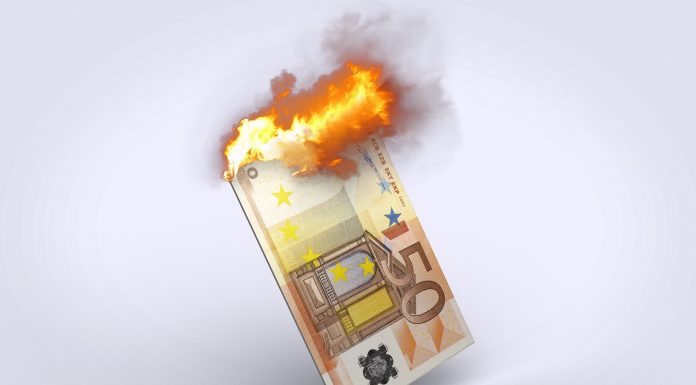By Prof. Dr. Marc De Vos, a Visiting fellow at Belgian think tank Itinera
Let us take a look at the war in Ukraine as a battle between emotion and reason.
Emotion as Russia’s mission for cultural and political spheres of influence. The survival instinct of Putin and his regime. The patriotism and heroism of the Ukrainian people, their leaders and soldiers. The indignation and solidarity among Europe and America in a struggle for humanitarian values.
Emotion is important, perhaps even crucial, in alliances, in battles and in the war of attrition which the conflict Ukraine is becoming. But in the longer term, emotion cannot do without reason, without the hard facts of finances, equipment and personnel, without the cold logic of interests over values.
Europe and America are on Ukraine’s side, not only because we find the Russian invasion barbaric, but also because stopping Russia is in our geopolitical interest. The Ukrainians are heroes, but without our resources, weapons, technology, intelligence and logistics, their fate would have been sealed.
Decoupling, deglobaliseren https://t.co/bE6LF9zFQn
— Marc De Vos (@devosmarc) March 21, 2023
Total victory seems impossible for anyone
Let us therefore contrast reason with emotion. This is a war with no visible exit towards truce or negotiation. There only is a mutual fixation on victory. Total victory seems impossible for anyone. Russia can only prevail if it succeeds in the total conquest of Ukraine. Ukraine can only restore its territorial integrity if there is a total Russian defeat AND regime change in Moscow. Indeed, until Russia becomes pro-Western, Ukraine can either claim territorial integrity or Europeanisation, but not both.
On the other hand, there are the geopolitical consequences of more than one year of a war which has not been settled. The Russian invasion in itself guarantees that the free part of Ukraine will belong to the free West: that is a massive change. Russia has now been weakened economically, politically and strategically and this will last for a long time. The Putin regime is caught up in international sanctions. Europe is permanently turning away from Russian energy. NATO has been restored. America has shown it is still in control. All regimes with invasion ambitions – read: China over Taiwan – have been taught a lesson.
The hard lesson of realpolitik is the following. While complete victory on both sides seems unachievable, the partial end of the status quo is sufficient for the strategic goals of the United States and Europe to be achieved. How long will our emotion prevail over that reason? If we want to isolate Russia, if we want to restrain other belligerent regimes, then we must avoid the very de facto coalitions and alliances caused by a long war. If America wants to contain China, then America should be able to focus on Asia instead of Ukraine. If Ukraine wants to join Europe economically and politically, it is difficult to do so as a shattered and deflated ruin and impossible without some form of pacification with Russia. If we want to rebuild Ukraine, we need the capital and growth which the war is now consuming.
Like it or Not, the US Faces a Russia-China Axis – CEPA https://t.co/SswfMV4rgz
— Orange Peel (@rottenbanana101) April 5, 2023
Escalation in Ukraine threatens our strategic objectives
The war in Ukraine threatens to approach a tipping point where escalation will no longer serve but threaten our strategic objectives. I hope we will nevertheless show the courage of perseverance and I also hope that our arms production will be able to keep up with that courage. It is not possible to put a price on the principles for which Ukraine is fighting. But if the same is true on the other side, we risk a protracted conflict in Ukraine; whereby the risk of direct confrontation between the West and Russia increases every single day. US presidential elections will follow in 2024. Will emotion prevail over reason even then, or will reason then become the new emotion: one of America first?
Originally published in Dutch on Trends magazine
Disclaimer: www.BrusselsReport.eu will under no circumstance be held legally responsible or liable for the content of any article appearing on the website, as only the author of an article is legally responsible for that, also in accordance with the terms of use.













